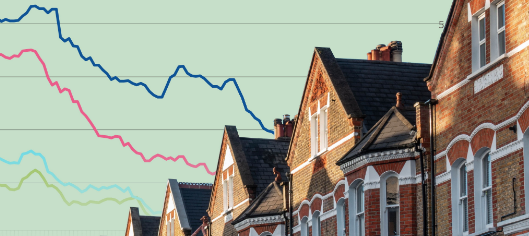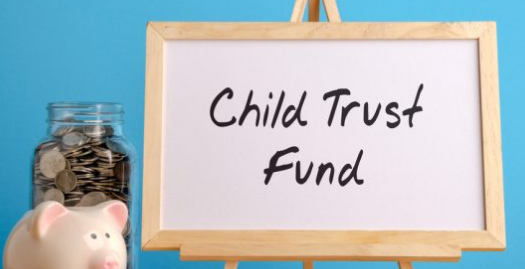
Key takeaways
- Homes will cost 10% less between June 2022 and June 2024, according to Morgan Stanley. In contrast to that, U.S. prices have increased by 45%. the housing market saw between December 2019 and June 2022.
- Some markets have already experienced a significant drop in prices; cities like San Francisco, Seattle, and San Diego are at the top of the list.
- Even though housing costs are predicted to decline, the ongoing housing shortage in America will likely support any catastrophic losses for homeowners. We’re probably not dealing with a 2008 scenario.
Morgan Stanley analysts forecast a 10% decline in national housing prices on average between June 2022 and the end of 2024. These figures might appear concerning at first glance, but it’s important to take the surrounding circumstances into account.
First, this level of market cooling doesn’t necessarily indicate a “crash.” Typically, we would anticipate a 20% price reduction in the event of a housing market crash. Unless we experience a severe recession that results in high unemployment rates, this is not even close to what experts are currently projecting. It probably wouldn’t be as bad even then as it was in 2008.
Will there be a housing market crash in 2023 and by how much could prices correct? Here, we examine the main causes of the most recent declines and analyst predictions for the future.
Table of Contents
What is a Housing Market Crash?
Typically, a housing bubble is followed by a housing crash. In that market, the typical home price is significantly higher than the property’s actual value based on underlying fundamentals. Excessive lending that the market doesn’t immediately pick up on can cause this.
The price of homes in the Western world was significantly and persistently impacted by the financial crisis of 2007–2008. House prices in the US dropped 7.1% in the fourth quarter of 2008 and then another 7% in the first quarter of 2010. These significant drops occurred amid 19 consecutive quarters of negative house price growth.
Between 2008 and 2009, house prices in the UK dropped by as much as 15%; this was a shorter and more severe decline than in the US. The UK didn’t recover losses and raise prices to 2007’s average levels until 2014.
This has been attributed to a “sub-prime” lending crisis, in which several mortgage lenders approved lenders who were unable to pay back their debts, and these mortgages were tied up in overvalued securities, eventually ruining the global financial system and eroding the value of homes.
The effects of a housing crash on the larger economy, however, can be even more severe than the pain it would initially cause for homeowners and real estate investors.
The value of a home makes up a sizable portion of the average person’s asset value, according to the Bank of England (BoE), giving them the assurance to spend money in the economy. This self-assurance is destroyed in a crash, and some people may experience negative equity, which is when the value of their home declines below the purchase price they made it for.
This feeds into consumption patterns, which can cause low demand to spread throughout the economy, harming stocks and having an impact on macroeconomic policy.
Some have come to believe that the next painful correction is imminent because prices are currently rising more quickly than they did during the previous bubble. The housing market’s bottom won’t fall out this time, however, according to analysts, who point to a number of compelling reasons.

Higher Interest Rates Hurt Buyers’ Affordability
According to the most recent Nationwide House Price Index, the average price of a home in the UK decreased by 1.4% in November to pound;263,788. Although the housing market is not yet in a crash, home prices are falling at their fastest rate since June 2020 and for the third month in a row.
While prices continued to rise year over year in November, they did so at a slower rate of 4.4% compared to October’s 7.2%.
The primary cause of the decline was an increase in mortgage rates to an eye-watering 5.24% in October, the highest level since 2008. This increase made UK homes less affordable and scared off prospective buyers.
The BoE raised the interest rate seven times in 2022, raising it by 75 basis points (bps) to 3% in November, the biggest increase since 1989. In October, net borrowing for mortgage debt reached a yearly low, according to the most recent data, and approvals for mortgages decreased 10% to 59,000. Buyers find it difficult to borrow money due to rising mortgage rates and the cost of living crisis, which reduces demand for housing.
Robert Gardner, Nationwide’s chief economist, commented:
“Although the state of the financial markets has stabilized, new mortgage interest rates are still high and the market has lost a significant amount of momentum. A time when household finances are already under stress from high inflation has led to a significant increase in the affordability of housing for prospective buyers and home movers.”
A bleak outlook on the housing market collapse is also evident in Canada, where new home prices decreased by 0.1% and 0.2%, respectively, for two consecutive months in September and October, according to Statistics Canada. According to a Canadian Real Estate Association report, sales activity dropped 3.9% between August and September, and the national average home sale price dropped 9.9% in October.
According to the analysts at CREA, there are good reasons to be optimistic. For the first time since the start of the hiking cycle in 2021, sales started to increase. Shaun Cathcart, CREA’s senior economist, noted:
“The data from October provided additional evidence that the slowdown in the Canadian housing markets is ending. From September to October, sales actually increased, and for the fourth consecutive month, the monthly price decline shrank.”
July and August saw two straight months of US home price declines of 0.6% and 0.7%, respectively. However, September saw a recovery with a 0.1% increase. However, pending home sales continue to decline, most recently by 4.6% in October, as mortgage rates reached 20-year highs before declining in November. Gurleen Chadha, US economist at Oxford Economics, commented:
“The affordability of purchasing a home is still significantly lower than it was at the beginning of the year, despite recent drops in mortgage rates and home prices. Because of this, we anticipate that existing home sales will be under pressure for the majority of 2023. Next year’s home sales will also be impacted by an impending recession, which we anticipate will lead to some job losses.”
The Market Was in An Unsustainable Rally for Two Years
Since the pandemic began, home values have soared. The price increase from December 2019 to June 2022 was 45%. Even with recent price drops taken into account, home prices have increased 38% since March 2020. This rate of growth was unheard of and unsustainable. It had to stop moving forward at some point.
One of the primary factors contributing to its slowing down is the fact that it was unsustainable. Even though there is a housing shortage, far fewer people are able to actually purchase due to the housing market’s vast outperformance of wage growth.
America’s Housing Shortage Isn’t Getting Better
America has a housing shortage that has existed since before the pandemic, and that is the background to this. Up for Growth and Freddie Mac experts estimated that America needs 3.8 million new homes to address this issue as recently as 2021. The National Association of Realtors claims that the number of new homes may be closer to 7 million.
However, new construction is waning. Between October 2021 and October 2022, the number of housing starts was down 8.8% and the number of requests for building permits was down 10.1%.
As a result, any drop in home prices over the coming year is likely to have a floor. Despite the fact that fewer people can afford to buy because of the high prices, the supply crunch should prevent the supply from significantly outpacing demand.
Given that a quarter of renters already give their current landlord more than 50% of their income, the outcome of this equation isn’t pretty for them. There is a chance that these people won’t be able to purchase a home when prices drop.
However, it might give homeowners a tiny bit of comfort that their chances of losing their home are less likely. The number of foreclosures hasn’t yet reached pre-pandemic levels, even though home prices have started to decline in most markets over the past few months. Moreover, the market conditions that led so many people to default on their mortgages in 2008 no longer exist.
Housing Market Crash Predictions for 2023 and Beyond
Will the housing market crash as mortgages become unaffordable and a recession approaches? Even though there are many unknowns at play, most analysts expect a correction of some kind.
Oxford Economics, in a November outlook on house price crash scenarios, expected advanced economy interest rates to peak in 2023, prompting a double-digit home value correction over 2022-2023, noting:
“The current state of the world’s housing markets is extremely challenging due to rising interest rates, high prices, and squeezed real incomes. According to our baseline forecast, these risks appear to be particularly pressing in a select group of economies, with some, like Canada, currently going through a serious downturn, while others, like Australia, France, the Netherlands, and the UK, are expected to experience only minor to moderate corrections.”
In line with the pessimistic outlook regarding the UK housing bubble burst, Daniel Mahony, UK Economist at Handelsbanken, noted on December 1 that while the UK market is slated for a correction, the impact won’t be uniform. He said:
“In 2023, it appears likely that average prices will experience nominal drops and, of course, even more significant drops in real terms due to the high inflation environment. The supply of homes entering the market is declining, but demand appears to be declining at a faster rate. The upcoming correction, however, won’t likely be felt equally across the UK; for instance, given their above-average loan-to-income ratios, London and the South East may be particularly hard hit.”
Nationwide’s Gardner, however, pointed that employment conditions remain strong, with most mortgages resilient to interest rate increases due to their fixed-term nature:
“Additionally, with about 85% of mortgage balances having fixed interest rates, household balance sheets continue to be in good shape with significant protection from rising borrowing costs, at least temporarily. The underlying supply constraints that are causing stretched housing affordability also reflect the need for some price support.”
Where Are Home Prices Dropping Fastest?
That doesn’t necessarily imply that home prices won’t decrease. In actuality, between June and September of 2022, home values decreased 2.6%, according to the S&P Case-Shiller Index. Although the rate of the short-term declines has been noticeable, they were still up 7.81% compared to the previous year.
Most of the metro areas the S&P considers experienced a decrease over the three-month time period in 2022, but these cities saw the biggest drops:
- San Francisco: – 10.36%
- Seattle: – 9.55%
- San Diego: – 7.24%
- Los Angeles: – 5.61%
- Denver: – 5.60%
- Dallas: – 4.34%
- Portland: – 4.25%
- Las Vegas: – 3.69%
From August to September of 2022, all of the two metros that had continued to see price increases over a three-month period experienced price decreases.
Why Are Prices Dropping More Quickly in These Cities?
The market that has experienced the greatest price drops might make for the best case study: San Francisco.
Unaffordable home prices and high interest rates (though marginally lower in November) are problems that the San Francisco market is experiencing similarly to those that the rest of the nation is. The main distinction is the greater fall required for San Francisco.
One of the most expensive housing markets in the nation has long existed in San Francisco. Some of the most expensive prices in the country still have a ways to drop.
Since the pandemic started, many people have left San Francisco in particular; the county alone lost 6.7% of its population between July 2020 and July 2021. One explanation for this is that tech workers, who are disproportionately concentrated in this area, have benefited from some of the most opportunities to work from home as more jobs began to become remote starting in March 2020.
And why pay for a home in one of the most pricey real estate markets in the country when you could live and work anywhere else?
The effects of widespread remote work migrations have had a sizable impact on the city’s real estate market, even though some workers are moving back to the Bay Area as some businesses eliminate flexible working opportunities.
The other cities on the list, from Seattle to Washington, D.C., have experienced similar phenomena, though the situation of each market is partially unique.
For instance, while home prices in New York have dropped, they haven’t dropped as much as those in San Francisco. More mandatory return-to-the-office policies have been implemented by New York-based businesses, which has compelled more people back into the city. When compared to San Francisco, this might be a contributing factor to the city’s tempered price declines.
The Bottom Line
It’s important to remember that analyst predictions about the likelihood of a housing crash can be inaccurate, so you should conduct your own research before acting. Always do your own research, including looking at the most recent news, fundamental analysis, and technical analysis, before trading.
Future returns cannot be predicted based on past performance. Additionally, never trade money that you cannot afford to lose.
FAQs
Will House Prices Go Down in 2023 US?
While there will be no wave of foreclosures, home prices will decline in 2023, says Taylor Marr, Redfin’s deputy chief economist According to Marr, the typical U.S. home-sale price to drop by roughly 4% in 2023.
What Happens When the Housing Market Crashes?
A real estate bubble, in which the average home price is significantly higher than its actual value, is usually followed by a housing crash. Because homes make up a sizable portion of the average person’s assets, housing crashes can have a significant negative impact on consumer confidence. A crash destroys that self-assurance and can cause some people to experience negative equity, which is when the value of their home drops below the amount they originally agreed to pay for it.
What Caused the Housing Market Crash?
The Western world’s housing market has been significantly and permanently impacted by the financial crisis of 2007–2008. During the fourth quarter of 2008 and the first quarter of 2010, home prices in the US fell 7.1% and 7%, respectively. Along with these significant drops, there were 19 consecutive quarters of negative house price growth. This has been attributed to a ‘sub-prime’ lending crisis, where a number of mortgage providers approved lenders unable to repay their debts, with these mortgages being tied up in overvalued securities, eventually rotting the global financial system and eroding the value of homes.


